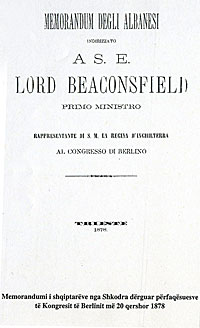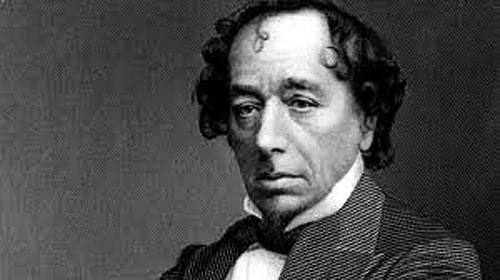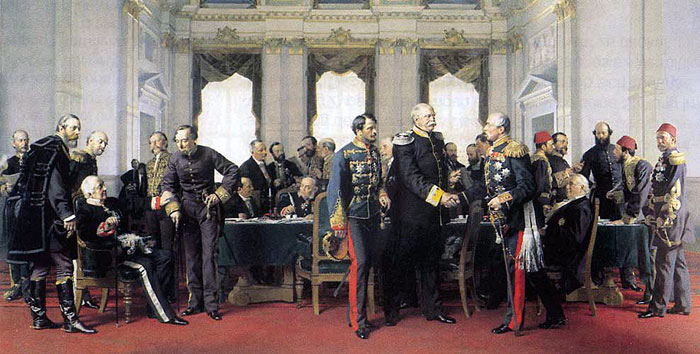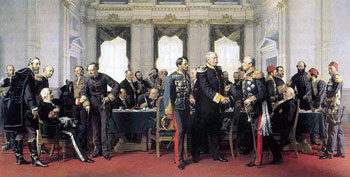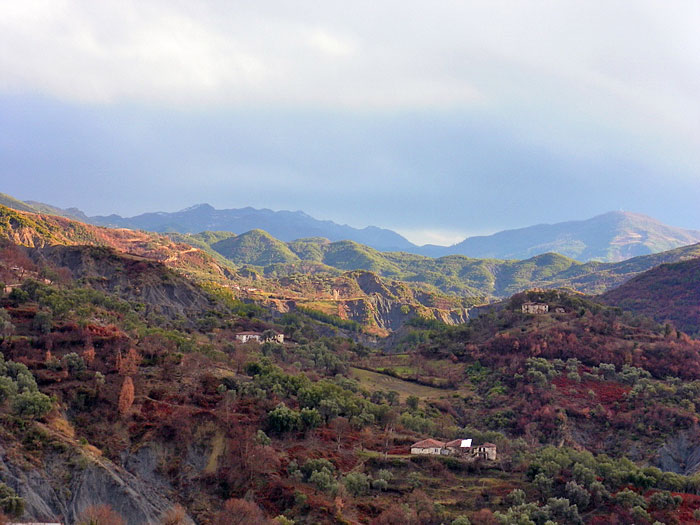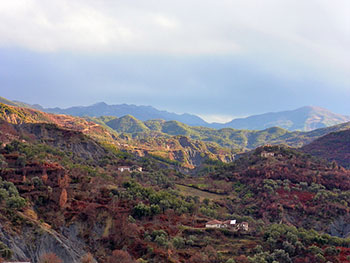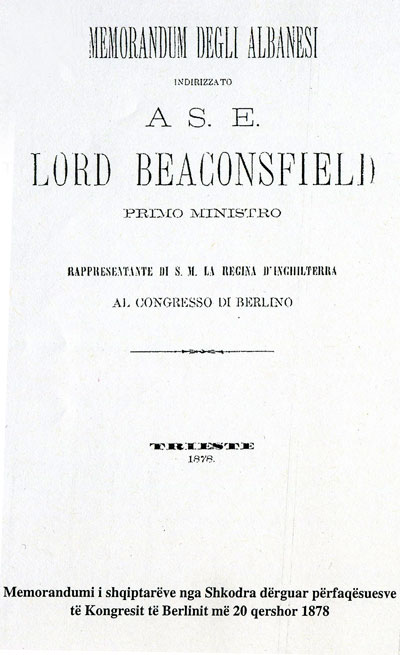| | Robert Elsie | AL Art | AL History | AL Language | AL Literature | AL Photography | Contact | |
Robert Elsie
Texts and Documents of Albanian History
BACK | AL History
1878
Memorandum to Lord BeaconsfieldThe Congress of Berlin was held by the Great Powers (Great Britain, France, Germany, Austria-Hungary Italy and Russia) in June and July 1878 to revise the Treaty of San Stefano, which Russia had forced upon the Ottoman Empire in that year, and to create stable political relations in the Balkans. It was chaired by German statesman Otto von Bismark, acting, in his words, as an “honest broker.” The Congress recognized the independence of Serbia, Montenegro and Romania, and made arrangements for a smaller, though autonomous Bulgaria, but nothing was done for Albania. The present memorandum was sent to the British Prime Minister, Lord Beaconsfield (Benjamin Disraeli), at the start of the Congress as one of the earliest appeals for Albanian autonomy and independence. It is thought to have been drafted by Pashko Vasa (Vaso Pasha Shkodrani). Despite the appeal, Albanian interests were completely ignored and all Albanian territories were returned to the control of the Ottoman Empire. Albanian leaders reacted to the Congress of Berlin by the creation of the League of Prizren.
Memorandum of the Albanians sent to His Excellency, Lord Beaconsfield,
Prime Minister and Representative of Her Majesty the Queen of England
at the Congress of BerlinExcellency,
While the representatives of the Great Powers of Europe have gathered at the Congress to find a reasonable and legitimate solution to the various issues that form part of the Eastern Question, the voice of the Albanians will certainly not be out of place among all the others appealing for justice and calling for the attention of the ministers plenipotentiary.
There is all the more reason to hope that the Albanian Question will be discussed at the negotiation table since the other nations of the Ottoman Empire already have governments and diplomats to express their aspirations, whereas Albania alone is without representation.
As it does not have a government of its own, it cannot represent itself, nor can it be represented by the Ottoman Empire because, realistically speaking, it is not a dependent part thereof.
Europe knows our history. Our ancestors, vanquished though not subdued by Turkish arms, maintained their independence, national character, traditions and language, and although they have different religions, be they Catholic, Orthodox or Muslim, the Albanians despise Turkish and any other foreign rule.
From the banks of the Boyana [Buna] to the gates of Janina [Joannina] there is one compact and homogenous core of population, with common characteristics and a common national identity.
From the latter town to the Gulf of Ambracia, the Greek element has been using religious and civilian propaganda to try and dispute the territory from the Albanian people who are predominant there, if not in number then at least in vigour and in their capacity to resist.
They are different both from the neighbouring Slavs and from the Greeks with whom they have never mixed, despite the influence of their common religious identity.
This national character has vigorously resisted Turkish oppression for over four centuries and has never been assimilated. The Sublime Porte has sown anarchy in Albania, depriving it of a government yet never being able to impose its own upon the country. It simply managed to exert its influence there, weak and unstable though it was, and deprived the population of the flower of its youth who were sent off to fight to all the wars in the East.
Albania thus has as many governments as it has tribes, which means that it has no government at all, and for this reason, our road to the congress can only be paved by the appeal of individual citizens.
But the voice of private citizens is too weak and would perhaps remain inaudible entirely if it could not rely on the support of the representative of a Great Power. The Power in question can be none other than Great Britain, which, although not alone, is certainly the most interested among the Powers in assuring that the Ottoman Empire is not replaced in the East by a more terrible regime.
British Prime Minister Benjamin Disraeli,
the 1st Earl of Beaconsfield (1804-1881)Austria has too many interests of its own and cannot hide its desire to transform the Adriatic into an Austria lake by extending its rule from Trieste down the whole of the Albanian coastline and by establishing itself in the great ports of Antivari [Bar], San Giovanni di Medua [Shëngjin], Durazzo [Durrës] and Avlona [Vlora].
In order not to incur Austrian jealousy and not to have its generous intentions maligned and misunderstood, Italy limits itself here to being a proponent of the principle of nationality, giving appropriate measure and example. Aware of the possible risks of Albania falling under a more strenuous foreign domination, it exercises its civilising and national influence with advice and suggestions.
With the exception of Russia, the other Powers are too far away and do not have any urgent or direct interest in taking over a protective role for the Albanians.
Therefore, only Great Britain can take up our requests and make them heard at the Congress. In doing so, it will not lack the support of the other Powers who have recognised our political existence and destiny from the moment the principle of nationality became the primary basis of European public law.
Independent of the issue of justice, Great Britain has great interest in creating a impregnable cordon to check the Slavic invasion advancing and flooding towards the Adriatic, and this cordon must and can only be created by the peoples who are most imperilled by the inexorable threat of their neighbours.
The Slavs who earlier slipped into the country and infiltrated it in secret, hesitate no longer to replace the long process of patient and laborious propaganda by open force. On the one hand there is the formidable spectre of Bulgaria since the creation of a strong monarchy there, and on the other hand there are the victorious banners of Montenegro that are now flying over several Albanian fortresses.
Now that Russia, that once penetrated and virtually imposed itself on Europe by virtue of its Christian religion, claiming to be its protector in the East, has openly stated its objectives with arms triumphant, it has lost all its prestige in Albania and Greece, where the terrible course of its invasions is looked upon with dread and disgust. It is for this reason that the people anxiously seek the support of a great nation - their only salvation from the total ruin of their country and from the disappearance of the Albanians from the map of Europe.
This dread held back the Albanian tribes who were anxiously waiting for an opportunity to throw off the Ottoman yoke and held them back from creating an alliance with Montenegro, which they justly regarded and continue to regard as a vanguard of the Russian armies.
It was this same dread that prevented us from accepting the proposals made to us directly by Austria and Russia who, despite their contrary objectives, both wanted to swallow and annihilate our nation.
Just as we are not Turks and do not wish to be Turks, we likewise oppose with all our force anyone who wants to make us Slavs, Austrians or Greeks. All we want to be is Albanian.
It was this sentiment, this dread of losing our nationality, that caused us to remain unmoved, but not indifferent, to the downfall of the Ottoman Empire. Otherwise, we would have assisted in its destruction and joined forces with the other nations rising in revolt.
It is well for Europe to appreciate that this was the most painful sacrifice our warrior tribes ever made for their country. It is important that public opinion understand our apparent inertia properly and not accuse us of having allowed that an opportunity to escape through our fingers and of having kept our swords in their scabbards, swords that were brandished and resplendent over the centuries whenever danger lurked on the battlefields of the East.
Albania has a place of glory in the annals of history. From Scanderbeg to Marko Botzari and from Lekë Dukagjini to Ali Pasha of Tepelena, it has conserved its national character and maintained its sacred devotion to independence.
When the Albanians were fighting in their mountains to defend the hearths of their ancestors and even when they were fighting alongside the armies of other nations, they were nonetheless distinct, both in their camp and when they went into action, with clearly defined lines separating them from other troops fighting under the crescent flag.
The Congress of Berlin, 13 July 1878,
painting by Anton von WernerOur national character, that no one has ever denied and that has struggled victoriously against Ottoman brutality for over four centuries, must not, in this century of civilisation, be dissipated by the work of European alliances. Europe has gathered to sanction the legitimate rights of nations in whose interest the war is said to have been fought, a war thought terminated by the Treaty of San Stefano.
Europe has, however, understood that, instead of ensuring peace, this treaty has only encouraged new and more terrible wars because it did not respect the rights of individual nations. Indeed, with indifference worthy of less civilised ages, it attempted to merge and immobilise them with the creation of less homogenous states aiming directly or indirectly at replacing Ottoman supremacy with Russian supremacy.
It endeavoured to impose Slav rule on many regions that were Greek or predominantly Greek and to have this rule extend from the banks of the Black Sea to those of the Adriatic and Aegean. Greek aspirations were checked not only by calculated delays and by the tergiversation of diplomacy, but also by Russian forces deployed in Montenegro. On the other hand, it allowed Montenegro to grow substantially and expand into the heart of Albania so that Montenegro could serve as a forward command post for Russia and as a bridgehead for further annexations.
Romania, which is not a Slavic country although it contributed substantially to Russian victories, has not only been abandoned, but also, with a sense of ingratitude that verges on treachery, has been mutilated with the demotion of one of its best provinces.
Serbia, although a Slavic country, has only obtained minor territories for itself, because they were afraid of awakening the longing for autonomy that took root in the Serbs in their centuries of independence.
It is apparent, therefore, that Russia’s aim is to rule in Thrace and on the Bosphorus through Bulgaria, and in Albania and on the Adriatic through Montenegro. By being the mistress of two seas, she will be able to block western access to all the roads leading to the East.
Central Albanian landscape near Petrela
(Photo: Robert Elsie, February 2012).For this reason and in order to deceive Europe, the spectre of Ottoman rule in Constantinople is left intact, whereby the sultan has actually been reduced to the position of a viceroy to the government in St Petersburg. This is the only reason why a radical solution has not been found for the Eastern Question.
If Russia has raised its sword to free the Christians from Turkish oppression, why has it abandoned many of them, depriving them of the support and protection that would have given them confidence and resolve to rise in revolt? Why has it left them under that intolerable yoke, which cannot be done away with by hypocritical concessions wrenched from a timid and weakened sultan lounging in the back rooms of his harem who, even if he wanted to, has no idea how to implement the reforms promised over and over and never fulfilled.
If Russia’s aims are indeed altruistic, why does it not organise the peoples it has liberated according to their nationalities and in line with their aspirations?
It is only the Bulgarians and Montenegrins who have the right to proclaim their independence, while all the other peoples striving for freedom - the Greeks, the Albanians and the Romanians - are to be condemned to live forever as rayah? Or are these peoples simply to choose between two yokes – the Turkish and the Slavic?
The European Powers cannot give their blessing to such injustice. They must not do so unless they wish the world to be confronted with the threat of a war of destruction that will sooner or later drag all nations into an inevitable conflict.
There can be no stable peace, durable order or possible civilisation in the East if the dissolution of the Ottoman Empire is not replaced by the emergence, in new form, of the nations that once constituted it.
It is a just and good policy for the Slavic nations to form one or more autonomous countries, but it is equally just for all the Greeks to be united in one single state and for the Albanians to be constituted and confirmed, and have their independence recognised.
Albania cannot be united with Greece. Profound differences in nationality, language, customs and culture would make such a union untenable. Albania will never endure Slavic domination, whether it comes from Bulgaria or from Montenegro. Nor will Albania ever be Turkish – this has been proven by over four centuries of struggle to preserve its national character, traditions and physiognomy intact.
Its religion may have changed somewhat, from Orthodoxy to Islam, and from the latter to Catholicism but, be they Orthodox, Muslim or Catholic, the Albanians have never belied their country and, tenaciously proud of their origins, they have always remained Albanians.
From a political point of view, it is not to be forgotten that Albania alone is destined to serve as a natural barrier to Slavic invasions, as it was earlier to Ottoman expansion.
Europe, blind and divided, once abandoned it to its fate to survive on its own, and, after a long and glorious struggle, it went under. But nineteenth-century Europe will not commit the same error and will recognise the services rendered by this people to the cause of civilisation to attain greater heights.
With its population of one and a half million, Albania is capable of raising an army of forty thousand warriors, a force not unknown to military circles in Europe, because in this country we are all warriors, accustomed to peril and capable of enduring all the tribulations of war.
The geographical position and mountainous terrain of our country make it an ideal place for resisting and repelling foreign invasion, all the more so since our defence force could be doubled by a confederation and natural alliance with Greece that regards the Slavs as its prime enemy and is now convinced that it has common defence interests with us.
An independent Albania would serve not only as a bulwark against Slavic expansion but also as an element of political and commercial stability because it would impede the exclusive supremacy of any one nation and would guarantee open access to all the roads leading to the East. At the same time, it would not raise any suspicions because its forces, though sufficient for its own defence, are not sufficient to threaten the independence of any neighbouring country.
Thus, if one examines the Albanian question from a positive legal aspect, one can easily see that the reconstitution of Albania as an autonomous and independent state does not bring about any substantial change because, as we have stated earlier, with regard to the Ottoman Government, Albania has maintained and, despite continuing threats, will always maintain its autonomy, just as Serbia, Romania and Montenegro have done. The only thing that distinguishes it from these countries is that the latter are represented by a hospodar or a vassal prince, whereas in Albania, each tribe has an independent chief who has no obligations towards the Porte other than to provide a contingent of troops on a voluntary basis in times of war.
As such, without changing anything essential, diplomacy only needs to confirm and recognise the status quo, the sole difference being a change in the form of political and administrative organisation concentrating supreme power in one hand rather than it being exercised by the chiefs of the independent tribes.
Thus, with regard to Albania, should the integrity of the Ottoman Empire be respected as a principle, it would in no way be violated by the recognition of an independent Albania.
Therefore, the step to be taken by the Powers, and it is good to repeat this one more time here, would involve nothing more than uniting all of these little autonomous governments into one. These have been the strength of Albania, but they have often also been cause of its weakness and have provoked the stern judgement that civilised Europe has rendered about us. We have always been judged unjustly.
Ever fearful of the unification of our tribes and of the reconstitution of an independent Albanian homeland, the Turkish Government has used cunning tricks to foment discord, basely and intentionally, to awaken sleeping jealousies, to inflate petty conflicts among us, and to set the pace for civil strife. It has imposed unjust taxes, exploited our resources in men and money and has transformed our fair country into a battlefield of bloody conflict and fratricidal war.
It is not in the interests of politics or of civilisation to abandon Albania in this situation, torn as it is between rival ambitions and suffering from continuous fraternal strife that has taken its toll to a distressing degree.
It is impossible to nurture and develop a stable society in a country in which anarchy, so to speak, constitutes the basis of social order. Weakness reigns where there is no stability. It can at least be said that the forces of which the nation disposes cannot then attain their full development. Furthermore, it is in the interests of all nations, and in particular of Austria, Montenegro, Greece and the new Bulgaria to see a stable, organised and civilised government set up in Albania so that they do not have an eternal source of disorder and unavoidable conflict on their borders, unless this country is left as it is, i.e. in a state of anarchy, or is subjected to foreign rule.
One should not be led to believe that Albania can be created in reliance on the Turkish Government because it would then be in a worse condition. Better would be that it be set up under the auspices of an international commission which would act in the same manner as proposed for Bulgaria and as may be done for Crete and or other territory to be annexed to Greece.
If another solution is chosen and if our fate is to be decided by the Turkish Government, we would prefer to remain in the present state of anarchy, rather than sacrifice our independence.
In reconstituting our country, the representatives of the Great Powers will, we hope, avoid the mistake of imposing upon us a non-national government.
Such a measure, inappropriate though it may be, could be foreseen for Romania or Greece, countries with a higher level of progress and civilisation, but it would be incompatible with the needs of the Albanian nation where customs are still crude and unrefined, not easily to be mitigated, and where there has always been opposition to any submission to foreign countries.
A prince not born in this country would immediately be opposed by everyone, all the more so since there is no lack of families in Albania who enjoy universal respect and admiration due to their many years of prominence or to the suffering they have nobly endured.
The Albanians will gather as one and with enthusiasm around any prince who can once again raise Scanderbeg’s black eagle in the mountains of their homeland, but they will be unmoved and look down upon any other banner or any commander whose orders are not given in the Albanian language.
Nonetheless, even such steps will be insufficient and in great jeopardy, initially at least, if they do not enjoy the support of the Great Powers.
Just as European guarantees were deemed to be necessary to protect the principalities of the Danube, Switzerland and Belgium, such support is equally essential for the new countries to be born out of the Treaty of Berlin.
Should other ideas prevail or should a different solution be adopted, Albania would easily fall prey to the Slavs who are strong and who have become audacious since their recent victories.
From these matters which we have had the honour to bring to Your Excellency’s attention on behalf of and in the interests of all our citizens, it is apparent that:
1. From a European perspective, aside from the subjective will of the Albanians, the strongest reason for creating a free and independent Albanian state is to create a barrier against Slavic expansion in order to protect western Europe.
2. If this natural barrier is left open, within a short period of time, Europe will find itself in the same situation as it was in the 16th century, when only a miracle under the walls of Vienna saved it from conquest by the Ottoman hordes. Then, as now, although the foe is not the same, the ambition and power and the means to carry it out are the same. The same things repeat themselves in human history over the ages. Though Europe was divided at the time, it is still not at peace, and the audacity of a single power would suffice to profit in the same manner from dissension and disagreement within it.
3. If the will exists to ensure a stable peace among the peoples of the East, they must be reconstituted on a national basis, with respect for the ethnic, geographical and historical laws and customs of each.
4. Because Albania is one single nation with regard to race, language, traditions, history and all the constitutive elements of a national identity, it has the right to be considered a single body, as it indeed is, and to be organised in a united form with one single government.
5. This government must be national, must arise from the breast of the country, and must be ruled by a national dynasty.
6. The work of creating it must not be left to the Ottoman government, but to a commission composed of representatives of the European powers, in order for it to be efficient, logical and stable.
7. Finally, this state, and all the others that are emerging from the ruins of the Ottoman Empire, must be provided with safeguards by the Great Powers so that, when they takes their first steps, they can seek friendly and generous advice, unequivocal guidance to help them along the road to progress under new auspices, and comprehensive and impartial support and protection so that they do not fall victim to perils and intrigues that might compromise their survival.
Great Britain, that ancient seat and mistress of liberty for all peoples, foremost among all the Powers has recognised the right of other nations to their independence.
Romania, Serbia and Montenegro are indebted to it for supporting the autonomy they have won.
It is Great Britain’s merit and it will be to her eternal glory that she promoted the coming fortunes of the new Greece that will now, under the patronage of the Empress Victoria, be able to extend and complete its national unity, relying on the ancient heroism of the modern Greeks. It will now pursue its glorious destiny with the generous gift of the Ionian Isles that became civilised and wealthy under the benevolent occupation of the Queen of the seas.
Albania, too, will be forever indebted to Great Britain for the consolidation and recognition of its independence, and the gift will not to go waste since the reconstitution of this new state will produce a corps of disciplined soldiers who will serve as outpost guards for the armies of western Europe.
The Albanians
Scutari [Shkodra], 13 June 1878
[Memorandum degli Albanesi indirizzato a S. E. Lord Beaconsfield, Primo Ministro, rappresentante di S. M. La Regina d’Inghilterra al Congresso di Berlino (Trieste 1878), 19 pp. Translated from the Italian by Robert Elsie.]
TOP
